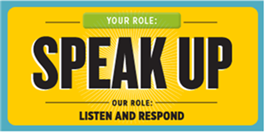UCF receives LEED® Campus credits
May 2, 2017The University of Central Florida has been awarded Leadership in Energy and Environmental Design (LEED®) Campus credits under the LEED v4 Master Site Building Design and Construction (BD+C) rating system, established by the U.S. Green Building Council (USGBC), and verified by the Green Building Certification Institute (GBCI).
UCF is committed to sustainable growth, and has mandated that design teams target at least LEED Gold Certification on all new construction projects, however, the university is continually striving to exceed that goal.
The Master Site program was sought after in order to demonstrate global compliance to the sustainable practices across the entire main campus, as well as streamline the documentation process for future LEED projects. Contrary to the traditional project by project certification, this approach allows these credits to be awarded automatically to all future LEED projects registered within UCF campus boundary.
The following design credits were achieved or partially achieved, pending project-specific components.
- Location & Transportation: Bicycle Facilities – Partial Credit LEED Intent: To promote bicycling and transportation efficiency and reduce vehicle distance traveled. To improve public health by encouraging utilitarian and recreational physical activity. The credit option taken requires 10 basic public services within 200 yard walking or bicycling distance from an entry to its bike network or bicycle storage. The university provides 66 bike racks throughout campus and spaces for more than 6,500 bicycles, with far more than ten basic public services in range of the network, including retail, civic and community centers, and family entertainment venues. The full credit will be achieved on a per-project basis by providing 5% long‐term (covered) bike storage spaces and 2.5% short‐term bike storage spaces, and showers with changing rooms inside the building.
- Location & Transportation: Reduced Parking Footprint – Partial Credit LEED Intent: To minimize the environmental harms associated with parking facilities, including automobile dependence, land consumption, and rainwater runoff. The number of parking spaces within the campus boundary is 40.3% less than the Institute of Transportation Engineers (ITE) Transportation Planning Handbook’s baseline, based on the student and staff population of the school. The full credit will be achieved on a per-project basis by providing 5% of the total project parking spaces as preferred parking for car/vanpools.
- Sustainable Sites: Open space – Full Credit LEED Intent: To create exterior open space that encourages interaction with the environment, social interaction, passive recreation, and physical activities. Documentation was provided for outdoor open and vegetated space exceeding 30% of total campus built footprint required by LEED to achieve full credit. UCF’s large amount of conservation land (UCF Arboretum) and the Recreation and Wellness (RWC) Park provides 32% of open space with 87% of that space being vegetated within the campus area.
- Water Efficiency: Outdoor water use reduction – Full Credit LEED Intent: To reduce outdoor water consumption. UCF’s landscaping and irrigation systems reduces potable water consumption for irrigation by 100%, except areas near swimming pools and outdoor gardens due to health code regulations. Approximately 175 acres of land are irrigated using reclaimed water.
- Water Efficiency: Cooling tower water use – Full/Partial Credit LEED Intent: To conserve water used for cooling tower makeup while controlling microbes, corrosion, and scale in the condenser water system. Cooling towers, which are an integral part of the chilled water used for high efficient cooling of campus buildings, use a significant amount of water on campus. Calculations were performed to determine the cycles of concentration used for the cooling towers serving UCF’s district chilled water loop and to demonstrate conservation efforts in its cooling tower use. An additional point is available when reclaimed make‐up water is fully integrated at district cooling towers. Currently, reclaimed make-up water is being piloted on one of the ten district cooling towers.
- Materials & Resources: Storage and collection of recyclables (Prerequisite) – Full Credit LEED Intent: To reduce the waste that is generated by building occupants and hauled to and disposed of in landfills. Facilities Operations Housekeeping and Recycling manages household recycled materials, while Environmental Health and Safety manages hazardous materials, including batteries, mercury containing lamps, and electronic waste. The university’s Recycling Policy and Universal Waste Procedure, and locations for collection and storage of recyclable materials demonstrated its dedication to this credit.
- Indoor Environmental Quality (Prerequisite): Environmental tobacco smoke control – Partial Credit LEED Intent: To prevent or minimize exposure of building occupants, indoor surfaces, and ventilation air distribution systems to environmental tobacco smoke. UCF is proud to be Smoke Free. Following its commitment to providing a healthy working and learning environment, the university does not permit smoking anywhere on university owned property. The full credit will be achieved on a per-project basis by providing “No Smoking” signage on all new buildings at all entrances.
- Innovation in Design: Green Housekeeping – Full Credit LEED Intent: To encourage projects to achieve exceptional or innovative performance. UCF employs a Green Housekeeping policy for both internal staff and external vendors covers sustainable cleaning products purchase, hygiene practice, hazardous chemical storage, and training requirements. This policy applies to all cleaning procedures, cleaning material and equipment purchases, and cleaning contractor services that occur inside and on the building site.
While already mandated through the Green Building Construction and Renovation Requirements, Campus credits give new construction a head start to becoming LEED Certified. Additional Campus credits will be attempted in the future, ultimately demonstrating our commitment to reducing the impact of buildings on the environment and human health.
For more information on LEED or USGBC, visit http://www.usgbc.org.

